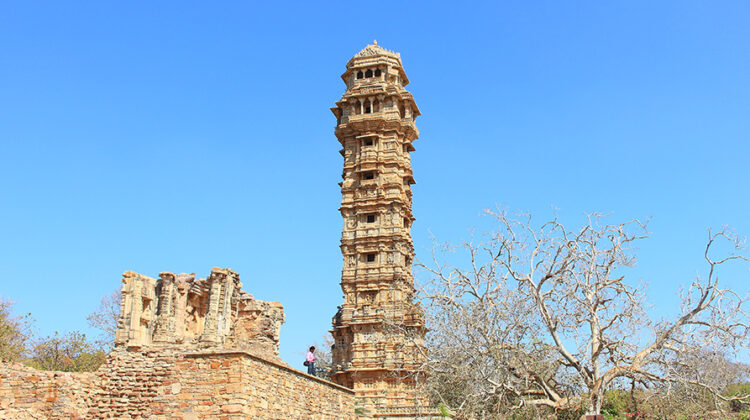
Vijay Stambha or Tower of Victory is one of the most famous monuments of India and is an important tourist attraction of Rajasthan. Located in Chittorgarh fort in Rajasthan, India, Tower of Victory was constructed by Mewar king Rana Kumbha between 1442 AD and 1449 AD to honour his distinguished victory over the joint attacks of Sultan Mohammad Khilji of Malva and Sultan Kutubuddin Shah of Gujarat.
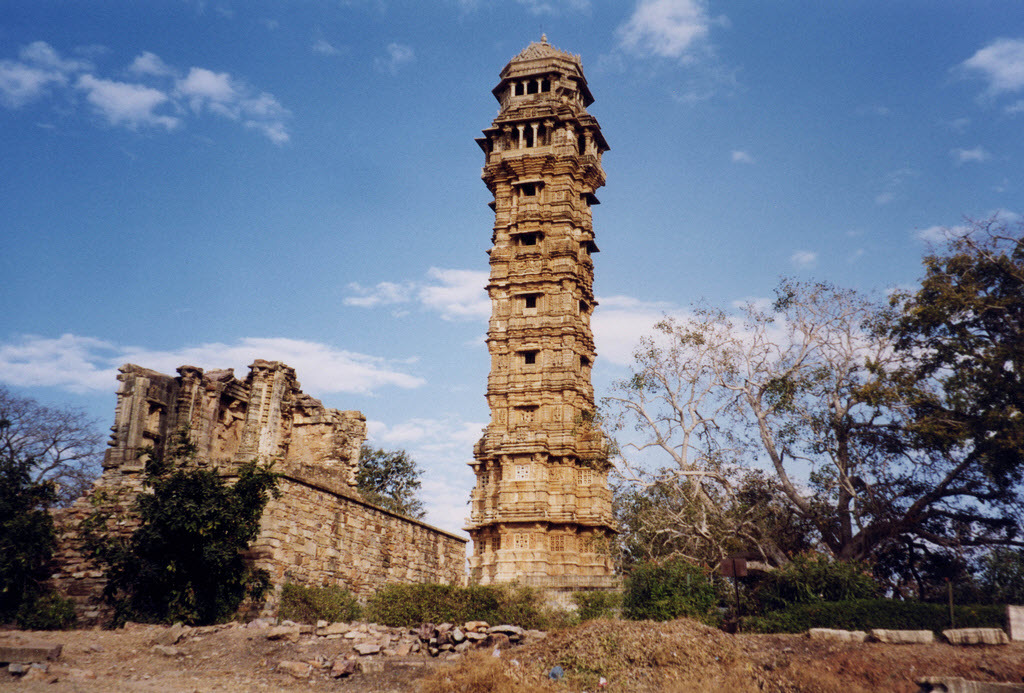
Its graceful and immaculate architecture is unique. Dedicated to Vishnu, this 37.19 m high tower was constructed on a 14 m square platform. Its base width is 9 m. The Tower is built partly of red sand stone and partly of white marble.
The interior and exterior are delicately carved showing Hindu deities of mythological characters with names. The inscribed slabs in the uppermost story contains genealogy of the rulers of Chittaur from Hamir to Rana Kumbha. The entire tower is covered with architectural ornaments and inscribed images of gods and goddesses, seasons, weapons, musical instruments, etc. Its inscribed sculpture are a veritable text-book of Hindu iconography. The portraits of the architect of this tower Jaita and his 3 sons, Napa, Puja, and Poma are carved on the fifth floor of the tower.

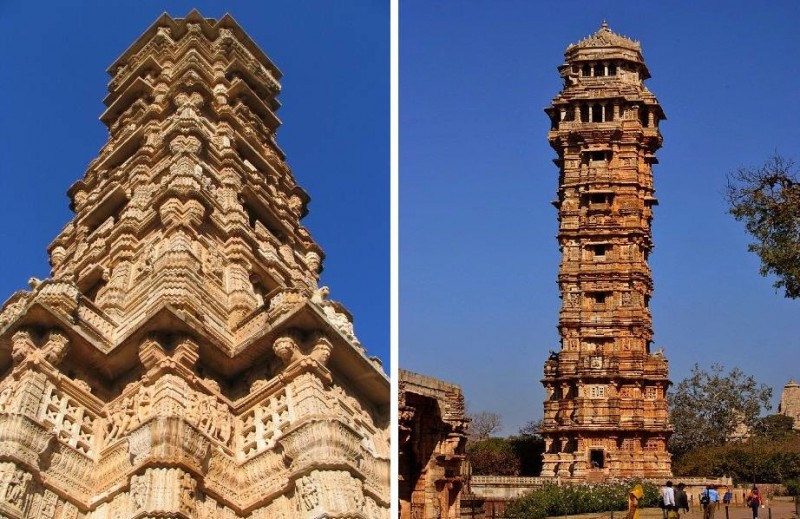
The Tower has nine storey, each of the nine storey are distinctly marked with openings and balconies at every face of each storey. The 157 circular and narrow steps which leads to the terrace is also a noticeable feature of the architecture. After reaching at the top of tower, anyone can see a great and unique view of the whole city. The uppermost floor has been sealed off and is no longer accessible to visitors.
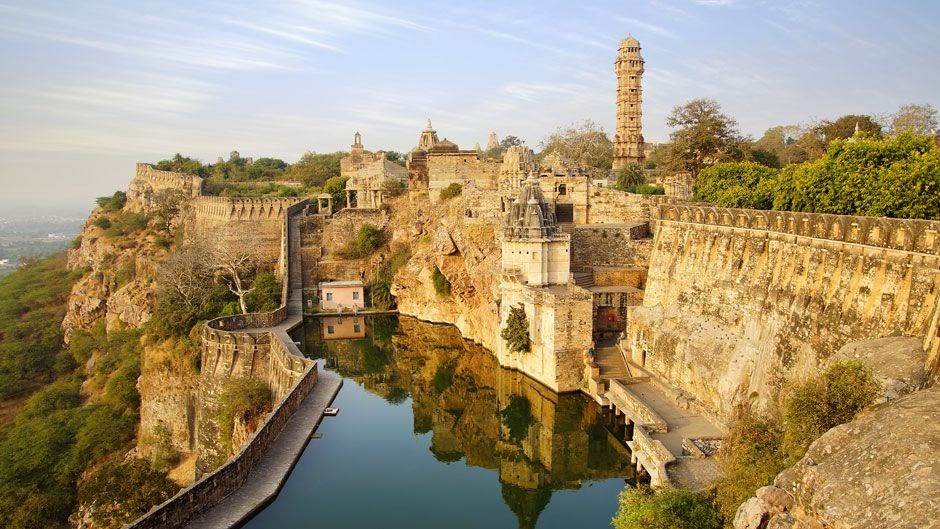
The area around the Vijay Stambh is littered with an impressive number of further remains, including a pair of monumental gateways and a number of florid temples, including the superbly decorated Samiddhesvara Temple, whose shrine houses an image of the trimurti, a composite, three-headed image of Shiva, Brahma and Vishnu.
Several temples line the route, but the most impressive monument is Kirti Stambh. The inspiration for the tower of victory, this smaller Tower of Fame is 22 metre high and was built by a Jain merchant Jeeja Bhagerwala during the reign of Rawal Kumar Singh (1179-1191) for the glory of Jainism.
In the night, colourful lights increase its beauty. When reaching near Vijaya stambh (Tower of Victory) and viewing it from bottom gives great feelings of old time architecture and joy of victory. So really its a great piece of monuments and must be included in great architecture of India.
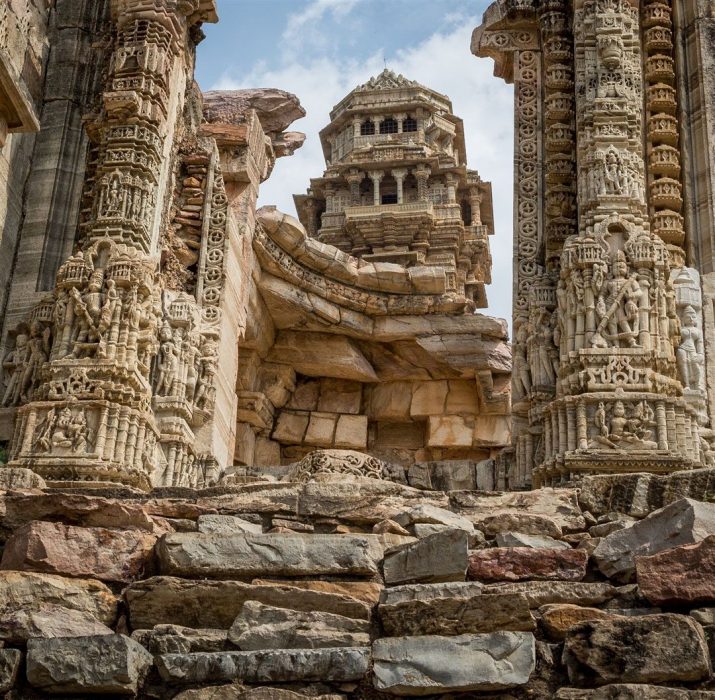

Leave a Reply